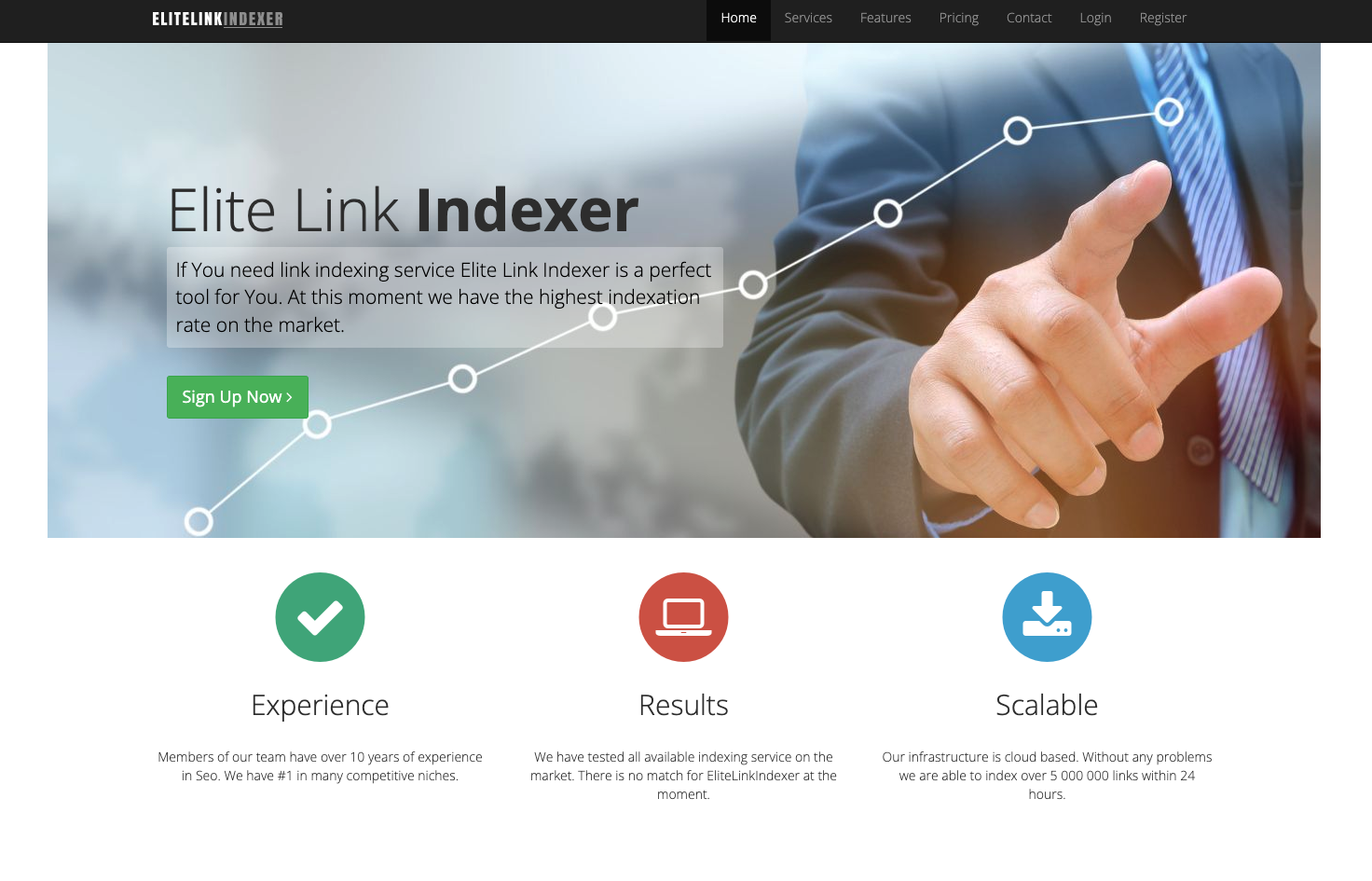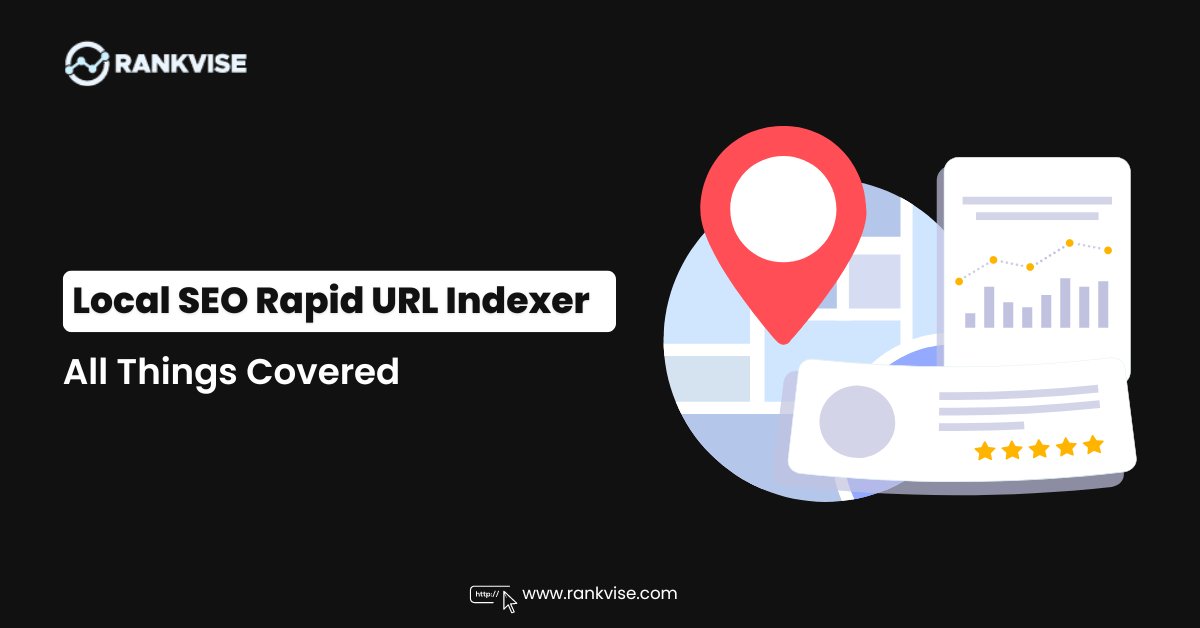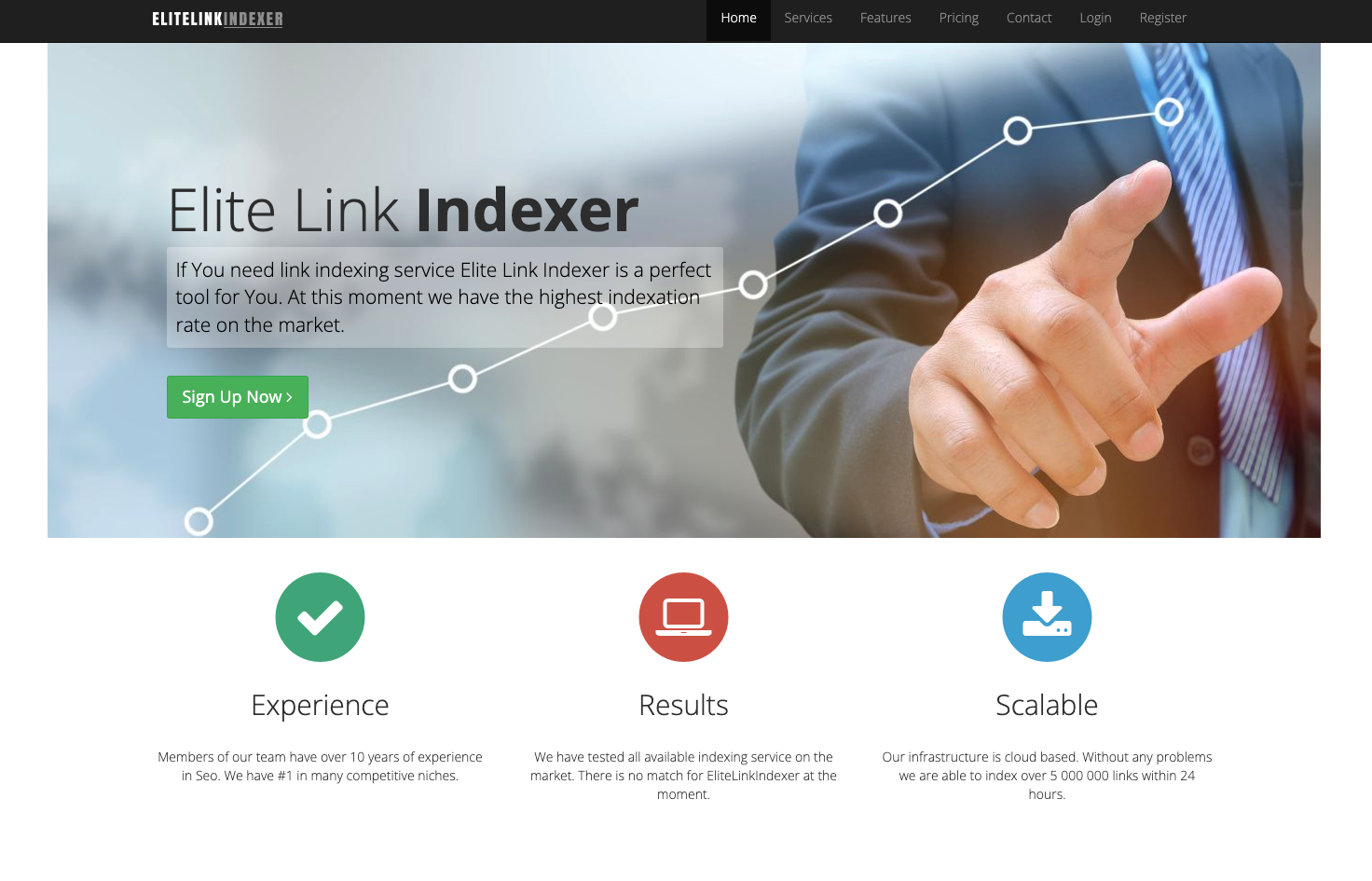In the competitive world of digital marketing and search engine optimization (SEO), link indexing services have emerged as vital tools for enhancing online visibility and improving search rankings. With multiple options available, each boasting unique features and advantages, selecting the right link indexing service can significantly influence an SEO strategy’s success. This article delves into a comparative analysis of top link indexing services, examining their effectiveness, ease of use, customer support, and overall value. By evaluating these critical aspects, the aim is to identify which service truly stands out from the rest and offers the best return on investment for users.
Top Link Indexing Services: An In-Depth Comparison
What Are Link Indexing Services? Link indexing services are essential tools for SEO professionals and website owners who aim to enhance the visibility and ranking of their sites on search engines. These services help your backlinks get indexed by search engines faster, ensuring that your SEO efforts are recognized and have an impact on your ranking. When backlinks are not indexed, search engines like Google do not acknowledge them, rendering them practically ineffective for boosting SEO. How Do Different Services Operate? Link indexing services follow various methodologies to ensure that links get indexed by search engines. Some services integrate automated submission to multiple high-DA websites, others use natural indexing processes that mimic organic growth patterns. Understanding these operations can be crucial: – Automated Submission: This approach involves submitting links to a network of trusted and high-authority websites or platforms in bulk. The objective is to trigger search engine bots to find and index these links promptly. – Natural Indexing Techniques: These employ organic patterns by submitting links gradually to avoid raising any flags with search engine algorithms, keeping in mind the natural link growth and flow. Key Features to Consider When comparing different link indexing services, certain features are vital to consider to determine which service might be the best fit for your needs. Here are a few: – Speed of Indexing: Quick turnaround can be crucial, especially for time-sensitive campaigns. – Success Rate: The percentage of links successfully indexed by search engines is a critical measure of a service’s effectiveness. – Cost-Effectiveness: Ensuring that the price you pay aligns with the services offered can significantly impact your budget. How Does Pricing Compare? Pricing varies significantly between different providers, often based on the level of service, number of links, and speed of indexing. Some services offer subscription models, while others charge per batch of links. Here’s a general idea of pricing structures: – Subscription Models: Typically provide ongoing indexing services at a monthly or yearly rate, allowing for a consistent approach to link indexing. – Pay-Per-Use: Charged based on the number of links or batches, it can be suitable for smaller operations or those requiring one-off services. Reliable Providers in the Market To give a better understanding of the options available, here’s a comparison of some popular link indexing services:
| Service Provider | Indexing Speed | Success Rate | Pricing Model | Unique Features |
|---|---|---|---|---|
| IndexJet | Fast | 85% | Subscription | Automated large network submission |
| Link Centaur | Moderate | 75% | Pay-Per-Use | Natural indexing techniques |
| OneHourIndexing | Very Fast | 90% | Monthly Subscription | High success rate and speed |
| GSA SEO Indexer | Slow | 65% | One-Time Fee | Standalone software tool |
Each service has its strengths, and the choice largely depends on specific needs such as speed, budget, and desired success rate.
What is the best link indexer?

Understanding Link Indexers
Link indexers are essential tools for boosting the visibility of your website and enhancing its presence in search engine results pages (SERPs). These tools work by fast-tracking the indexation process of your website links, ensuring they are picked up efficiently by search engines.
- Accelerated Indexation: A link indexer speeds up the process by which search engines index new or updated URLs, ensuring that your content appears in results without delay.
- Higher Visibility: By ensuring your links are indexed swiftly, a link indexer can help enhance your website’s ranking, leading to increased traffic and visibility.
- SEO Benefits: Properly indexed links ensure that your keyword strategies and SEO efforts benefit your overall campaign, optimizing both short-term and long-term performance.
Popular Link Indexer Tools
Choosing an effective link indexer can directly influence the success of your digital marketing campaigns. Each tool varies in terms of features and usability.
- OneHourIndexing: Known for its fast processing speed, OneHourIndexing helps get your links indexed in a matter of hours, rather than days.
- Indexification: Well-regarded for its comprehensive link indexing capabilities, Indexification offers a robust platform that supports multiple URLs at once.
- Link Centaur: Praised for its user-friendly interface, Link Centaur provides seamless navigation and effectively manages your indexation needs.
Criteria for Choosing the Best Link Indexer
Selecting the best link indexer can significantly affect your SEO results. Here are some criteria to consider when making the decision:
- Speed of Indexation: The efficiency with which a link indexer fast-tracks your link into the search engine’s database is crucial. Look for tools that promise rapid indexation.
- User Interface: A user-friendly and intuitive interface can enhance the experience of managing links, making the process smoother and more efficient.
- Pricing Structure: Assess the pricing plans offered by the indexer services to ensure they align with your budget and provide value for the features they offer.
Is Rapid URL Indexer the best indexing tool for SEO?

Understanding Rapid URL Indexer’s Functionality in SEO
Rapid URL Indexer is a tool designed to assist SEO professionals in getting web pages indexed by search engines more quickly. It’s crucial to evaluate if it indeed stands as the best tool for SEO purposes. Here’s a detailed breakdown of its functionality:
- Automated Submission: Rapid URL Indexer helps in automatically submitting URLs to various platforms which can speed up the indexing process.
- Streamlined Process: The user interface is designed to facilitate a straightforward indexing process, which makes the tool accessible even to those not deeply familiar with technical SEO.
- Multiple Search Engines: The tool is not limited to Google, it attempts to index URLs across several search engines, broadening the website’s reach and visibility.
Features That May Make Rapid URL Indexer the Best Option for Some Users
Different SEO professionals have varying needs depending on their goals and contexts. Rapid URL Indexer offers features that might make it preferable for some users:
- Cost-Effectiveness: It provides competitive pricing options compared to other indexing tools, making it attractive to smaller businesses or individuals.
- Speed: Known for its rapid indexing capabilities, it can be ideal for those needing prompt updates to their online content presence.
- User-Friendly Interface: The straightforward design allows users to quickly learn and effectively use the tool without an extensive learning curve.
Potential Limitations of Using Rapid URL Indexer for SEO
While Rapid URL Indexer has beneficial features, there are some limitations that users should consider when deciding if it is the best tool for their needs:
- Limited Advanced Features: Compared to other advanced SEO tools, it may lack some sophisticated features such as in-depth analytics and tracking capabilities.
- Dependence on External Algorithms: Being highly dependent on third-party search engines and their indexing algorithms, changes in these algorithms may affect the tool’s performance.
- Potential Over-REliance: Relying entirely on such tools might lead to neglecting other critical aspects of SEO, such as content quality and backlink management.
What advantages does Rapid URL Indexer API offer over gigabit indexer?

Speed and Efficiency
Rapid URL Indexer API is renowned for its speed and efficiency in processing URLs. Compared to gigabit indexer, Rapid URL Indexer API offers several advantages in this area:
- Faster Processing Time: Rapid URL Indexer API has been engineered to index URLs at a faster rate, ensuring quicker website visibility on search engines.
- High Throughput: It can handle a larger volume of URLs simultaneously, optimizing the indexing process for bulk submissions.
- Efficient Resource Utilization: The API is designed to maximize resource use, ensuring that it not only processes requests rapidly but also maintains server reliability.
Integration and Compatibility
Utilizing the Rapid URL Indexer API provides notable advantages in terms of integration and compatibility:
- Seamless API Incorporation: Rapid URL Indexer API offers easy integration with various platforms, making it a versatile tool for developers and webmasters alike.
- Wide Compatibility: It supports multiple programming languages and environments, enhancing usability across diverse tech stacks.
- Customizable Features: The API enables customization to fit specific project needs, allowing users to adjust settings and parameters as necessary.
Reliability and Support
The reliability and customer support offered by Rapid URL Indexer API are significant advantages over the gigabit indexer:
- Consistent Performance: The API is recognized for its consistent uptime and dependability, reducing the risk of indexing disruptions.
- Comprehensive Documentation: It provides detailed documentation that assists in smooth implementation and troubleshooting.
- Customer Support: Users benefit from robust support services, with experts available to address any challenges or queries efficiently.
Why do content marketers prefer Rapid URL Indexer over giga indexer for their campaigns?

Speed of Indexing
Content marketers often opt for Rapid URL Indexer due to its exceptional speed. The tool provides a quick solution for getting new content indexed in search engines like Google, often much faster than traditional methods.
- Immediate Results: Content can get indexed in just a few hours.
- Efficiency in Campaigns: Faster indexing helps marketers capitalize on timely events and trending topics.
- Competitive Edge: Being among the first to appear in search results can significantly improve visibility and traffic.
User-Friendly Interface
Another reason content marketers prefer Rapid URL Indexer is its user-friendly interface, which makes the indexing process easy and intuitive for both beginners and professionals.
- Ease of Use: Simple navigation and steps reduce the learning curve.
- Time-Saving: Marketers can focus on content creation rather than getting bogged down by complicated processes.
- Accessible to All: Non-technical users can execute campaigns effectively without needing extensive training.
High Success Rate
Rapid URL Indexer is favored due to its high success rate in getting URLs indexed, which is critical for maximizing the reach and effectiveness of a marketing campaign.
- Proven Track Record: Consistently delivers successful indexing results compared to some alternatives.
- Reliability: Assured understanding that URLs will be indexed as expected.
- Enhanced Visibility: More indexed pages result in higher presence in search engine results, driving traffic.
Frequently Asked Questions
What are Link Indexing Services and why are they important?
Link indexing services are essential tools used in the field of SEO to ensure that backlinks are properly identified and acknowledged by search engines. These services help in speeding up the process by which search engines like Google add or index a page in its vast database. Without effective indexing, your backlinks might not be contributing to your site’s ranking as search engines might not recognize their existence. This is particularly crucial for businesses and website owners aiming to improve their online visibility through enhanced search engine rankings.
How do different Link Indexing Services compare in terms of efficiency?
Link indexing services can vary significantly in their efficiency. Some services offer faster indexing rates, ensuring that your backlinks are recognized by search engines in a shorter period, while others might take longer. Efficiency often depends on the methodologies they employ, such as utilizing API integrations, leveraging large databases, and maintaining frequent updates with search engine algorithms. When comparing services, it’s crucial to look at user reviews, the long-term impact on SEO performance, and any claims of white-hat compliance to ensure your backlink strategy remains ethical and effective.
What features should you look for in a Link Indexing Service?
When selecting a link indexing service, several features should be considered to ensure you pick one that aligns with your SEO strategy. First, you should evaluate the service’s success rate in getting links indexed. Look for services with a transparent reporting system, where you can track the progress and success of indexing. Additionally, consider services that offer integration with multiple platforms and tools to streamline the process. Lastly, evaluate the support and resources provided by the service, such as tutorials or customer support, to help you effectively utilize their offerings.
What are the potential risks associated with using Link Indexing Services?
While link indexing services can be highly beneficial, they also carry potential risks that users should be aware of. Some services might employ black-hat SEO techniques, which could lead to your site being penalized by search engines if detected. It’s crucial to ensure that the service you choose adheres to white-hat best practices. Additionally, over-reliance on indexing services without maintaining quality content and organic link-building strategies can undermine your site’s overall SEO health. It’s best to use these services as a complementary tool rather than a primary strategy.

